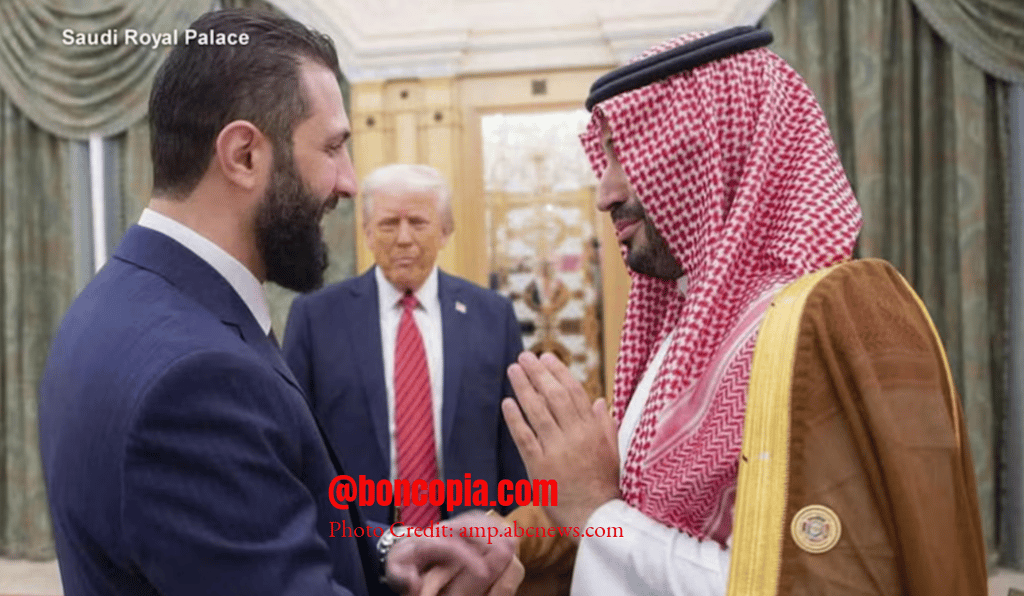Trump’s Praise for Syria’s New Leader Sparks Controversy: A Dive into U.S. Foreign Policy Shifts
5/16/20252 min read


Trump’s Praise for Syria’s New Leader Sparks Controversy: A Dive into U.S. Foreign Policy Shifts
In a surprising turn of events, former President Donald Trump has publicly praised Syrian President Ahmed al-Sharaa, despite the latter’s controversial past involving Al-Qaeda affiliations and actions against American troops. This statement, made during a meeting in Saudi Arabia on May 14, 2025, has ignited a firestorm of debate on social media and beyond, questioning the direction of U.S. foreign policy towards Syria post-Assad.
Trump’s comments, where he described al-Sharaa as a “young, attractive guy, tough guy. Strong past, very strong past — fighter,” come at a pivotal moment. The U.S. has recently lifted sanctions on Syria, a move aimed at fostering peace and stability in the region but one that has raised eyebrows given al-Sharaa’s history. With a $10 million bounty once on his head and accusations of killing civilians, women, and children, the decision to normalize relations with his government is seen by many as a risky gamble.
The context is crucial. Al-Sharaa, who led the insurgent offensive that overthrew Bashar al-Assad, has been working to legitimize his rule internationally. His government’s overtures towards Israel and promises of an inclusive society have been met with mixed reactions. While Gulf states like Saudi Arabia and Qatar support this shift, Israel remains cautious, wary of al-Sharaa’s extremist past.
On X, the reaction has been polarized. Ed Krassenstein’s post highlighting Trump’s praise has sparked a flurry of responses, from those who see it as a necessary step towards peace to others who view it as an endorsement of a mass murderer. The debate underscores a broader question: how far should the U.S. go in engaging with leaders who have a history of violence against its interests?
This shift in U.S. policy is not isolated. It’s part of a larger strategic realignment in the Middle East, influenced by Trump’s administration’s focus on ending conflicts and fostering economic ties, as seen in his interactions with Saudi Crown Prince Mohammed bin Salman and other regional leaders. However, the move to lift sanctions and praise al-Sharaa raises concerns about the message it sends regarding accountability for past actions.
As we navigate this complex landscape, several questions arise. Is this a pragmatic approach to stabilize a war-torn region, or does it compromise core values of justice and security? How will this impact U.S. credibility on the global stage, especially among allies who have suffered from al-Sharaa’s actions? And finally, what does this mean for the future of Syria and its people, who have endured decades of conflict and now face an uncertain path forward under new leadership?
These questions are not just academic; they are at the heart of how the U.S. defines its role in the world. As readers, we must consider the delicate balance between pragmatism and principle, and how our leaders’ decisions shape not just international relations but also the very fabric of global morality.
Thought-Provoking Questions:
Is praising a leader with a violent past a necessary evil for peace, or a dangerous precedent?
How should the U.S. balance its strategic interests with the need for accountability in international relations?
What does this shift in policy towards Syria indicate about the future of U.S. engagement in the Middle East?
hello@boncopia.com
+13286036419
© 2025. All rights reserved.